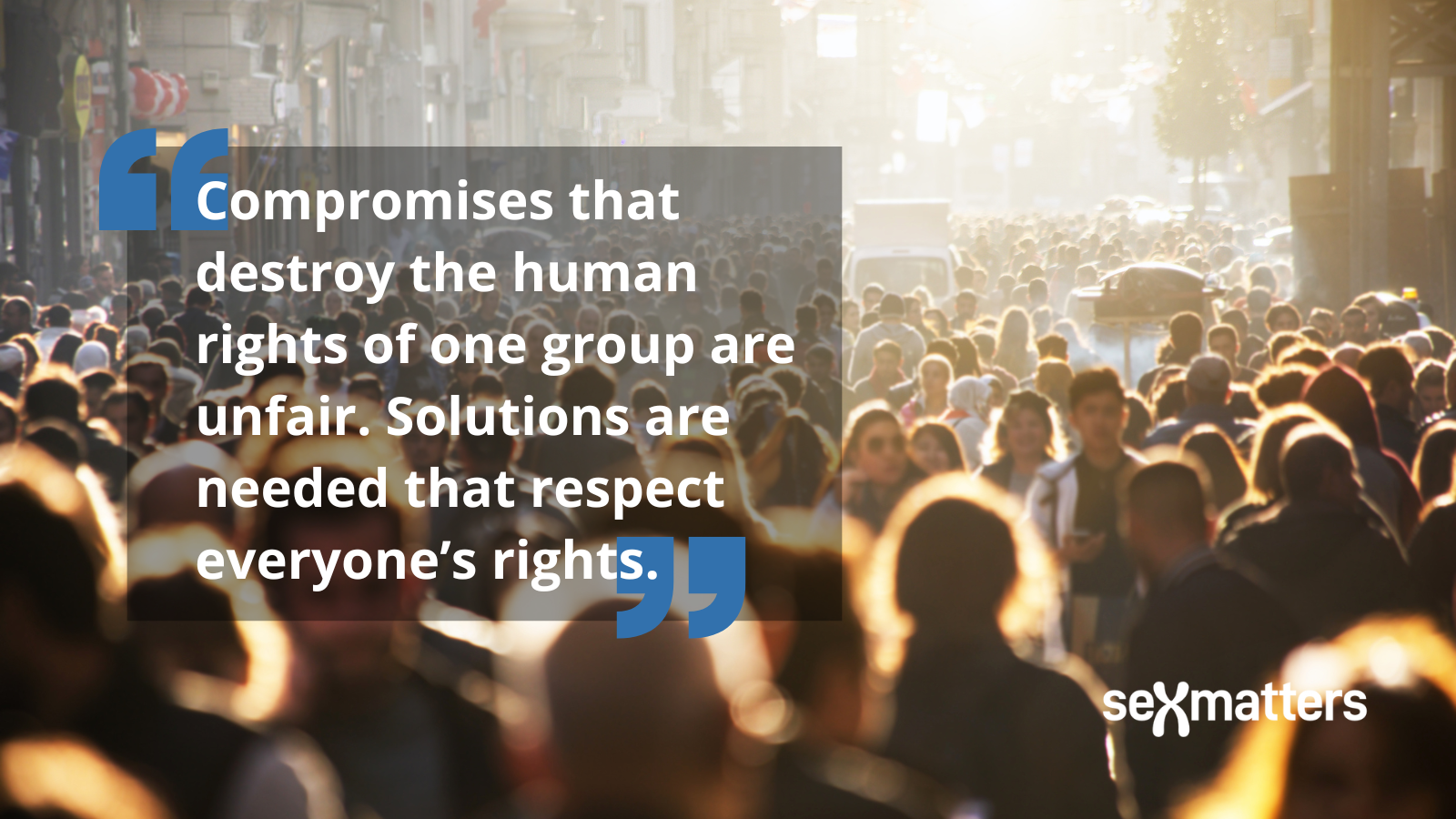Trans rights are human rights!

Sex Matters is a human-rights organisation. We believe that universal human rights form a powerful framework for thinking about how a diversity of freedoms can be respected, while protecting against harm and maintaining an open and prosperous society.
It is sometimes argued that those who call for clarity on sex, for clear single-sex paces and for protecting children from making life-long decisions that may harm their health are “anti-trans” or seeking to destroy “trans rights”. This is false.
Today we are publishing our human-rights framework, which sets out our thinking on how human-rights thinking can help resolve questions in the current battles over sex and gender identity.
Our starting points are that everyone has a sex, and that everyone has the same human rights. A person’s biological sex cannot change, and it impacts upon their life and relationships with others.
As part of important protections against sex discrimination, men and women may be treated differently (or separately) where there is a good reason such as differing biological or medical needs; to allow for fair competition in sport; or in order to respect bodily privacy and consent. People of both sexes have rights to reasonable bodily privacy, dignity, and freedom of association, and separate-sex facilities, with clear rules and boundaries, are particularly important for the inclusion of women in public life.
Children’s rights are a subset of human rights in which the special protection afforded to minors is central. Systems for safeguarding children and vulnerable people relate to one of the most fundamental values of democratic societies: the prohibition of torture and inhuman or degrading treatment. Protecting children’s rights often requires protecting parents’ rights, and this starts with children’s mothers.
Some people identify as transgender, and they have the same rights as everyone else, including freedom of expression and belief, freedom of association and respect for private life. Individuals should not be discriminated against because they identify as trans or adopt aspects of appearance associated with the opposite sex. They should not be subjected to violence, or arbitrarily denied access to work, education or services such as medical care, transport or utilities. But they do not have the right to compel anyone else to pretend they are a member of the opposite sex or to force anyone to share intimate spaces with them on this basis.
A key human right is the right to protect your private information. This is the right to say “None of your business” when asked for your personal details, such as your name, date of birth, sex, gender identity, beliefs or health data. But that right is limited. In many situations, you must answer truthfully in order to access a service or employment. Organisations need accurate information about people’s identity and their sex, such as in relation to healthcare, equality monitoring, parental responsibility and safeguarding. In any case it is rarely possible to keep the fact of being male or female private, as other people instinctively perceive and remember it, and they too have freedom of expression.
In some situations, conflicts of rights and interests may be a “zero-sum game”. If the rules governing single-sex spaces are changed so that some members of the opposite sex are able to enter, those spaces become mixed-sex, and many women will self-exclude. If males who identify as women are housed in women’s prisons, women will feel and be unsafe. If males are allowed to play in women’s sport then fairness and safety for women are destroyed. In this sense, rights are pie – and compromises that destroy the human rights of one group are unfair. Solutions are needed that respect everyone’s rights.
